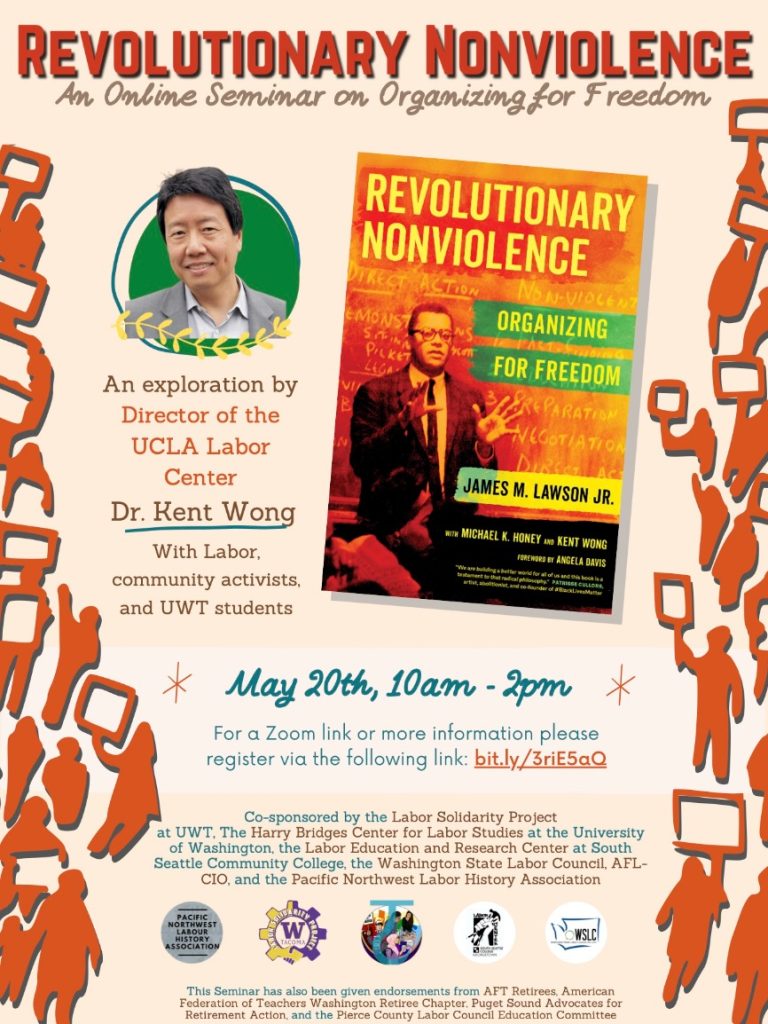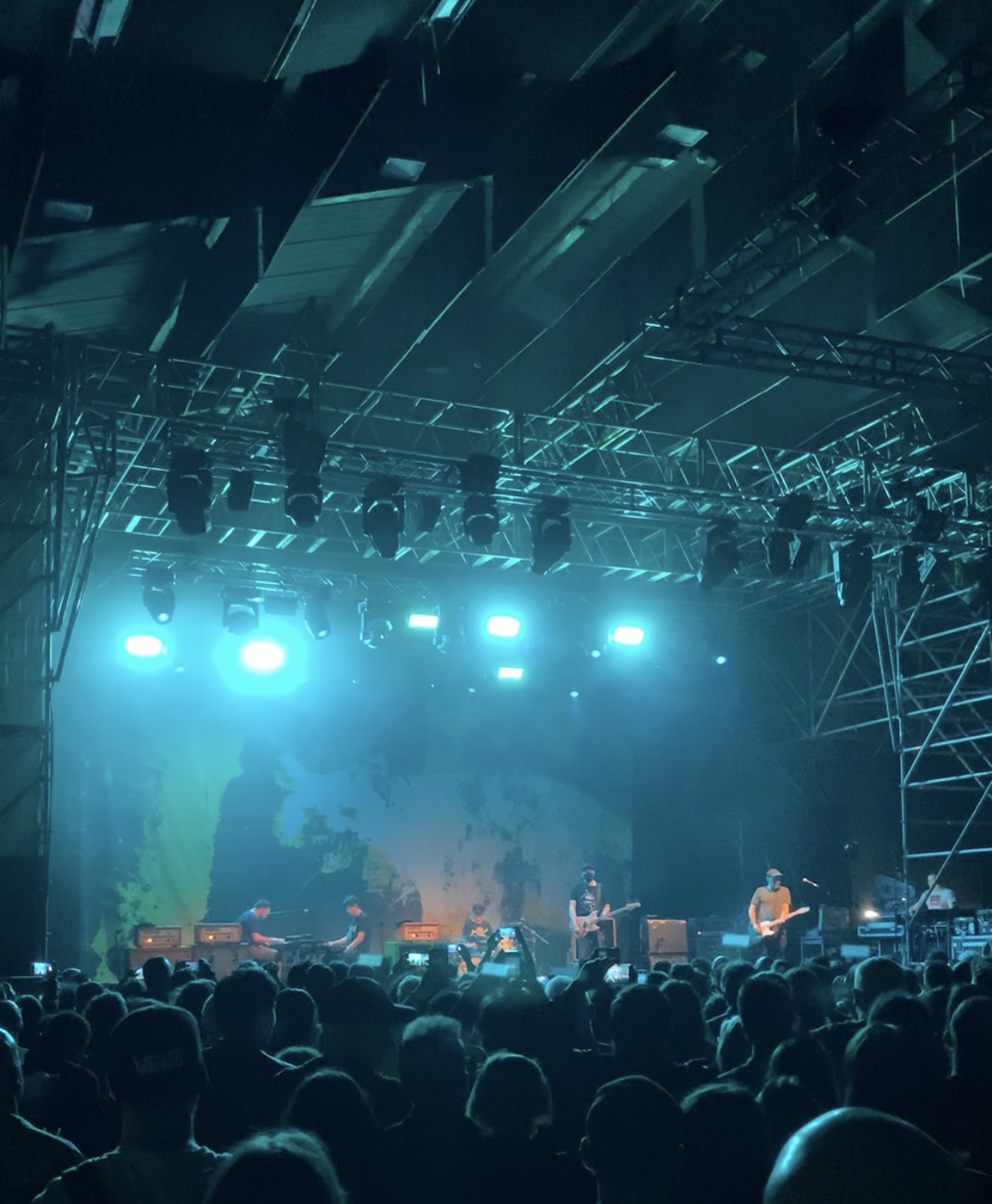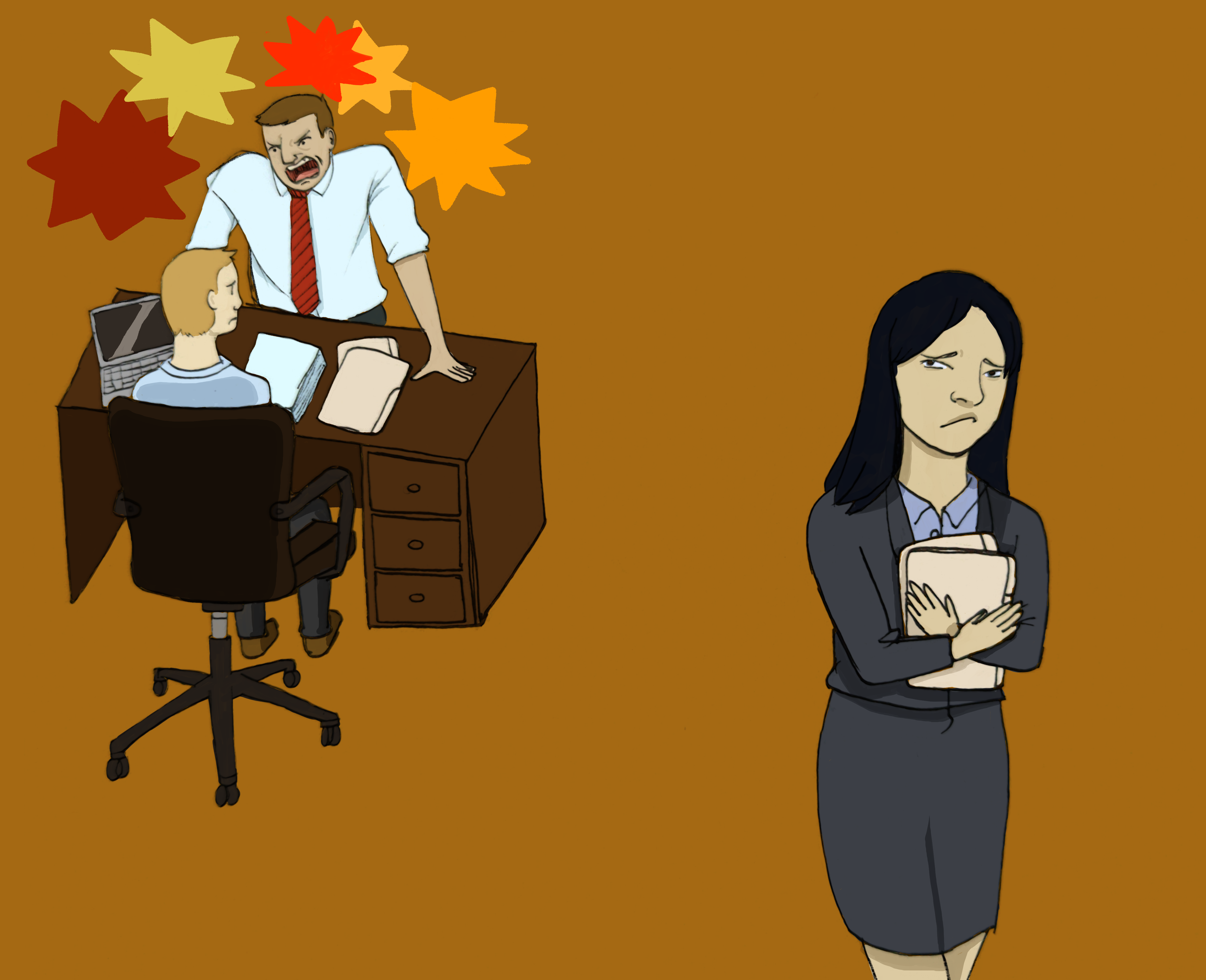Curious about non-violence resistance?
Come learn about the history and tactics of non-violence from the best minds in the country.
Ever been curious about the non-violent resistance movements of the 1950s, ‘60s and ‘70s? Have you ever wanted to learn more about the philosophy, tactics and organization of non-violent activism? Well, this coming Friday, May 20, from 10 a.m. to 2 p.m., Dr. Kent Wong, Director of the UCLA Labor Center, along with our very own Dr. Michael Honey will be leading an online seminar sponsored by the UWT Labor Solidarity Project.
This seminar will focus on the life and teachings of Rev. James Lawson Jr. a civil rights activist and author of the recent book “Revolutionary Nonviolence.” Rev. Lawson was one of the most prominent members of the non-violent civil rights and Black Freedom movements of the 20th century. Lawson was alongside Dr. Martin Luther King Jr. as a key organizer in their historic struggles against Jim Crow segregation, such as the famous Freedom Rides and the March on Washington.
Many people in this country enjoy the freedoms and respect deserved by all humankind as a direct result of the actions of King and Lawson. It is doubtful such a change would occur in our racially conflicted country without the selfless sacrifice, effective leadership and courageous compassion of these men and the tactics of non-violence which they advocated.
A commitment to non-violence is not only a brave condemnation of injustice and dehumanization, but also a courageous refusal to abandon compassion for the basic humanity of your oppressor. By acknowledging your oppressor’s humanity, you force them to see yours. That is the greatest strength of non-violent resistance. It acknowledges that people who behave with cruelty are merely victims of a system that perpetuates cruelty.
Non-violence is a fairly modern tactic, with most historians agreeing it began with Mahatma Gandhi’s famous resistance against the British Empire, before spreading to America to lead the civil rights movement to victory. Yet despite what is commonly known, the civil rights movement was only a partial victory. In studying the aims of this movement, you will learn the non-violence movement has more work to do. Work that our country and our world desperately needs in this time of inequality and uncertainty.
So come join us this coming Friday, and learn from some of the greatest minds on non-violent history and tactics. The movements of the future may need you.
Be sure to search for the “Revolutionary Nonviolence: An Online Seminar on Organizing for Freedom, with Dr. Kent Wong” on the UWT events page and register online.



